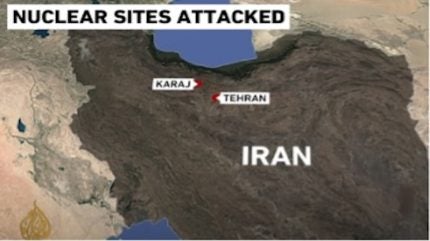
The International Atomic Energy Agency (IAEA) posted on X that, following further attacks by Israel, it “has information that two centrifuge production facilities in Iran, the TESA Karaj workshop and the Tehran Research Centre, were hit. Both sites were previously under IAEA monitoring and verification as part of the JCPOA”.
After years of contentious negotiations moderated by the IAEA, Iran signed the July 2015 Joint Comprehensive Plan of Action (JCPOA) with the P5+1 group of countries (the USA, UK, France, Russia, and China plus Germany) under which it agreed to limit its nuclear development programme in return for the lifting of sanctions. IN Security Council sanctions on Iran were lifted but sanctions imposed by the US and European countries continued. In response to the US’s withdrawal from the deal in 2018, Iran resumed nuclear construction and enrichment activities after notifying the IAEA. As a result, US and European sanctions were tightened further.
In a further post, IAEA said: “At the Tehran site, one building was hit where advanced centrifuge rotors were manufactured and tested. At Karaj, two buildings were destroyed where different centrifuge components were manufactured.
The same day, Mohammad Eslami, head of the Atomic Energy Organisation of Iran (AEOI), said staff morale at nuclear sites was high and personnel remained in place despite recent tensions. “The Iranian people have never yielded to pressure or coercion. Our colleagues at the nuclear facilities are performing their duties with determination and strength,” Eslami said. He emphasised that the situation at Iran’s nuclear facilities remains stable, and staff are working without disruption.
Earlier, IAEA Director General Rafael Grossi reiterated in an interview with CNN that the agency had found no evidence of an organised Iranian effort to build nuclear weapons. His comments come five days after the Israeli military strikes began, which Tel Aviv claimed were aimed at dismantling Iran’s nuclear capabilities.
“There is certainly no indication that Iran is on the brink of developing a nuclear weapon,” Grossi said. He noted that if any covert activity is taking place beyond the reach of IAEA inspectors, the agency would have no way of detecting it. “But based on our reports to date, there is no evidence of a systematic move toward weaponization.” Iran has consistently affirmed that its nuclear programme is peaceful and compliant with IAEA regulations. In a religious decree (fatwa), Ayatollah Khamenei has labelled weapons of mass destruction as “haram” (forbidden under Islamic law). Nevertheless, Israel has for decades said accused Iran of being within weeks of producing nuclear arms and has launched numerous sabotage and military operations targeting Iranian scientists and facilities.






